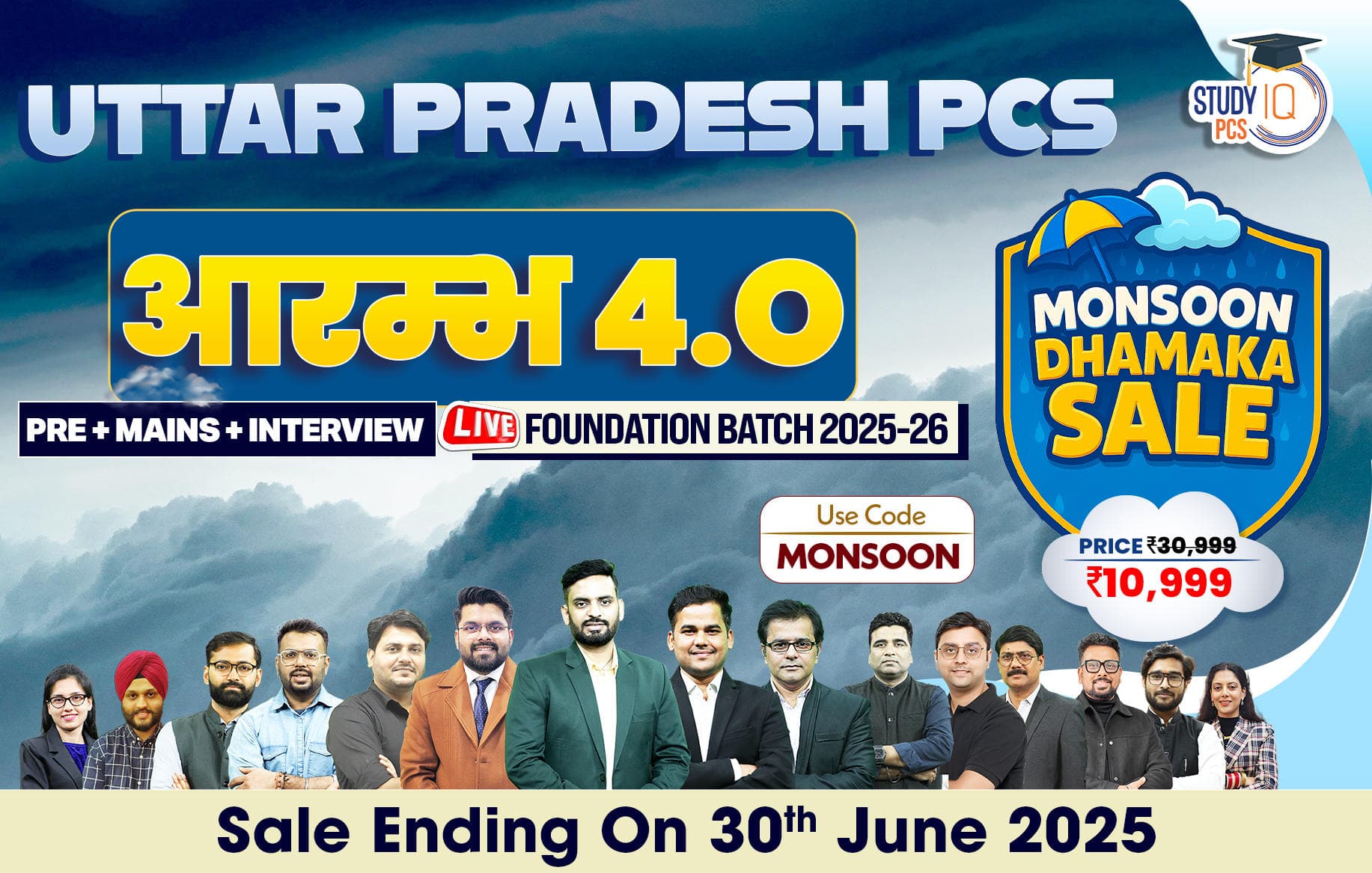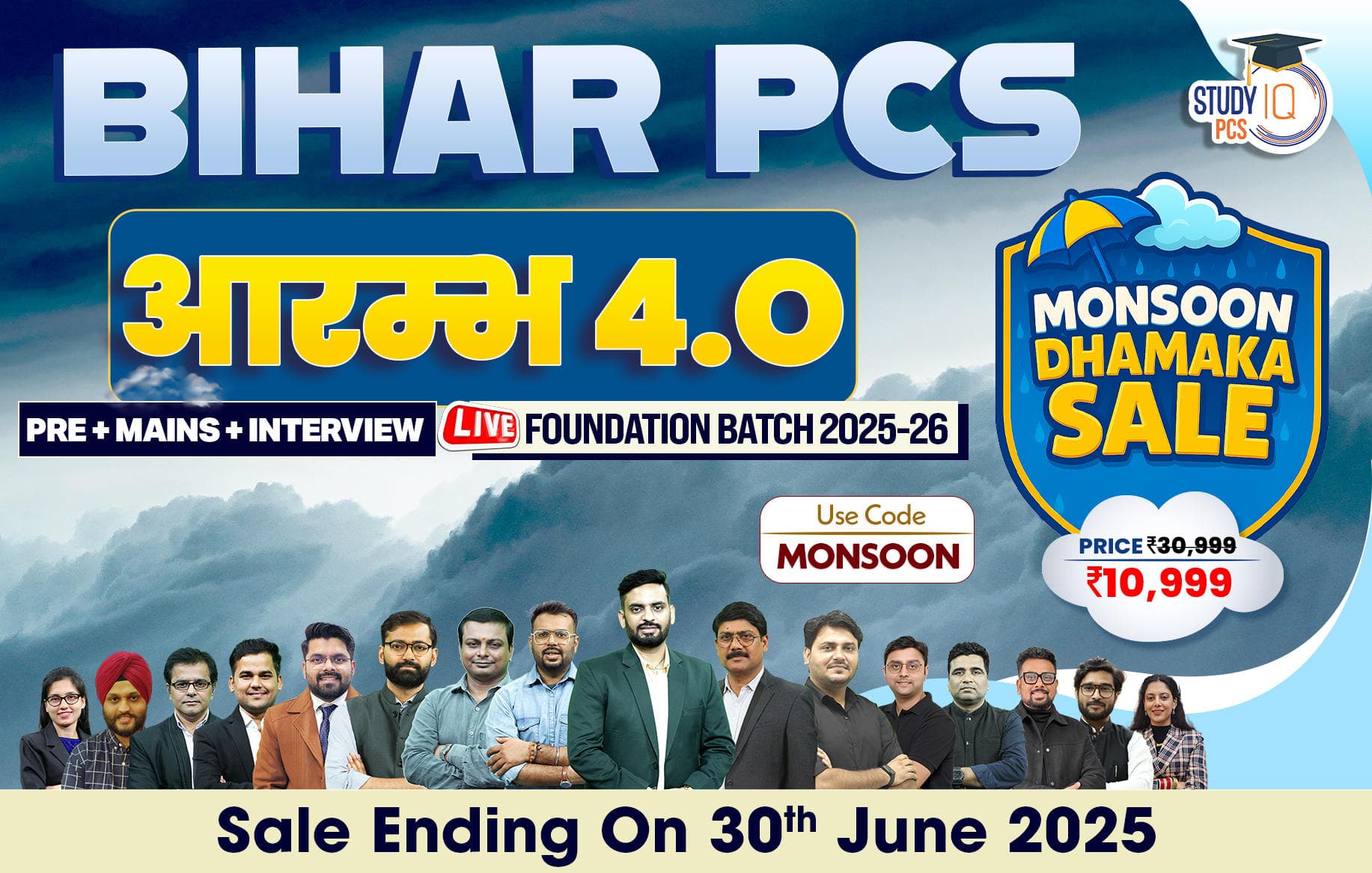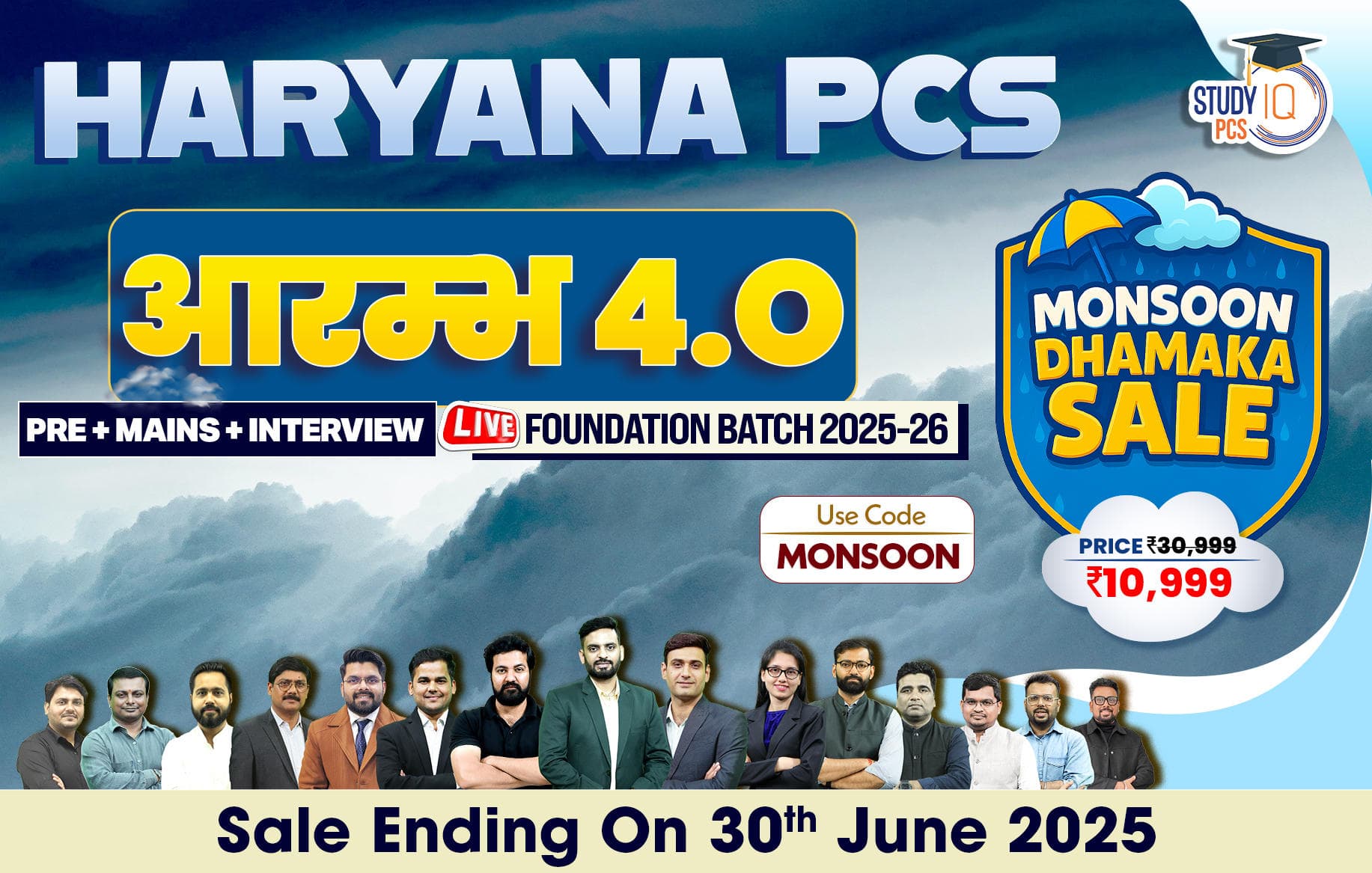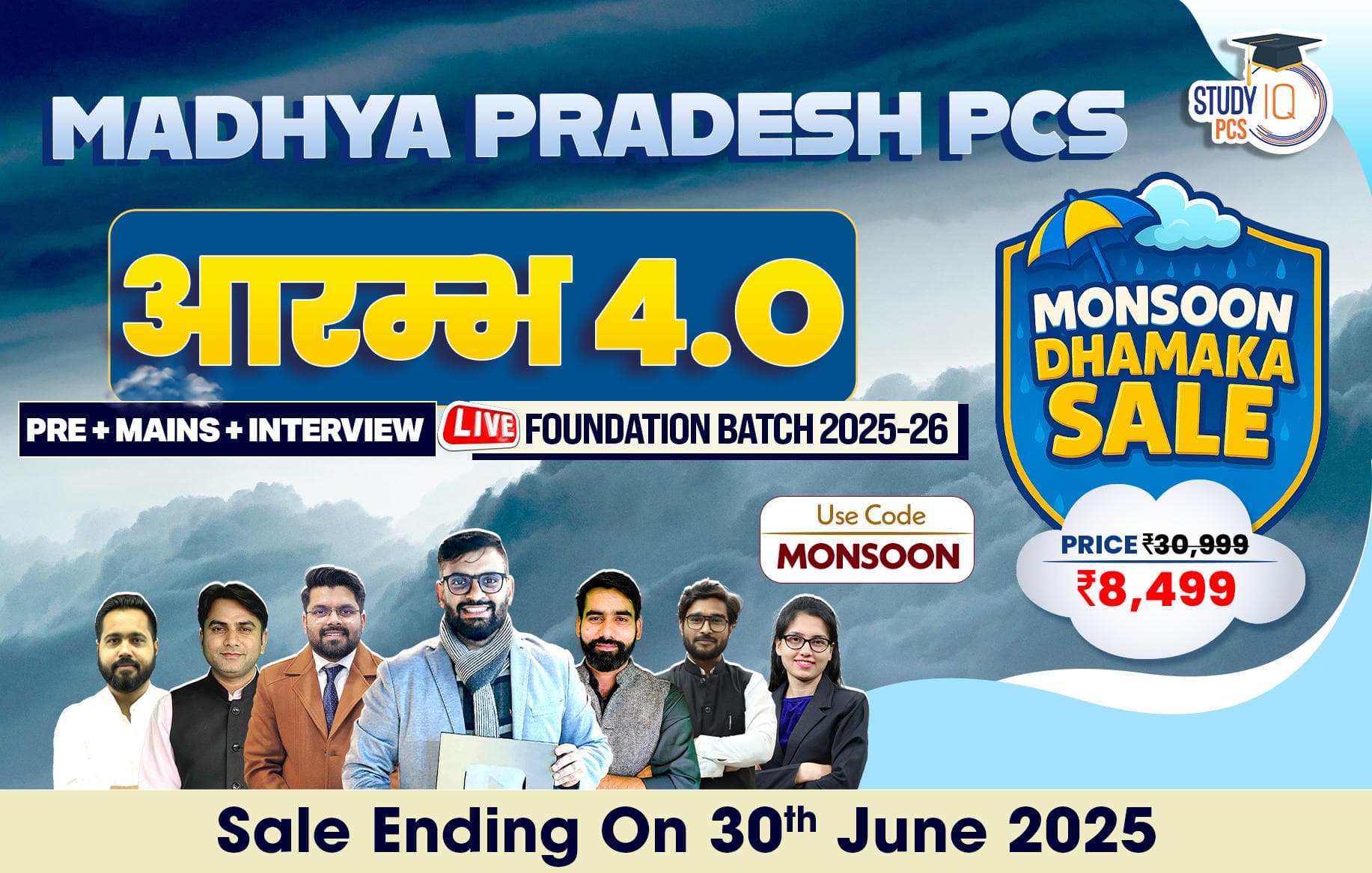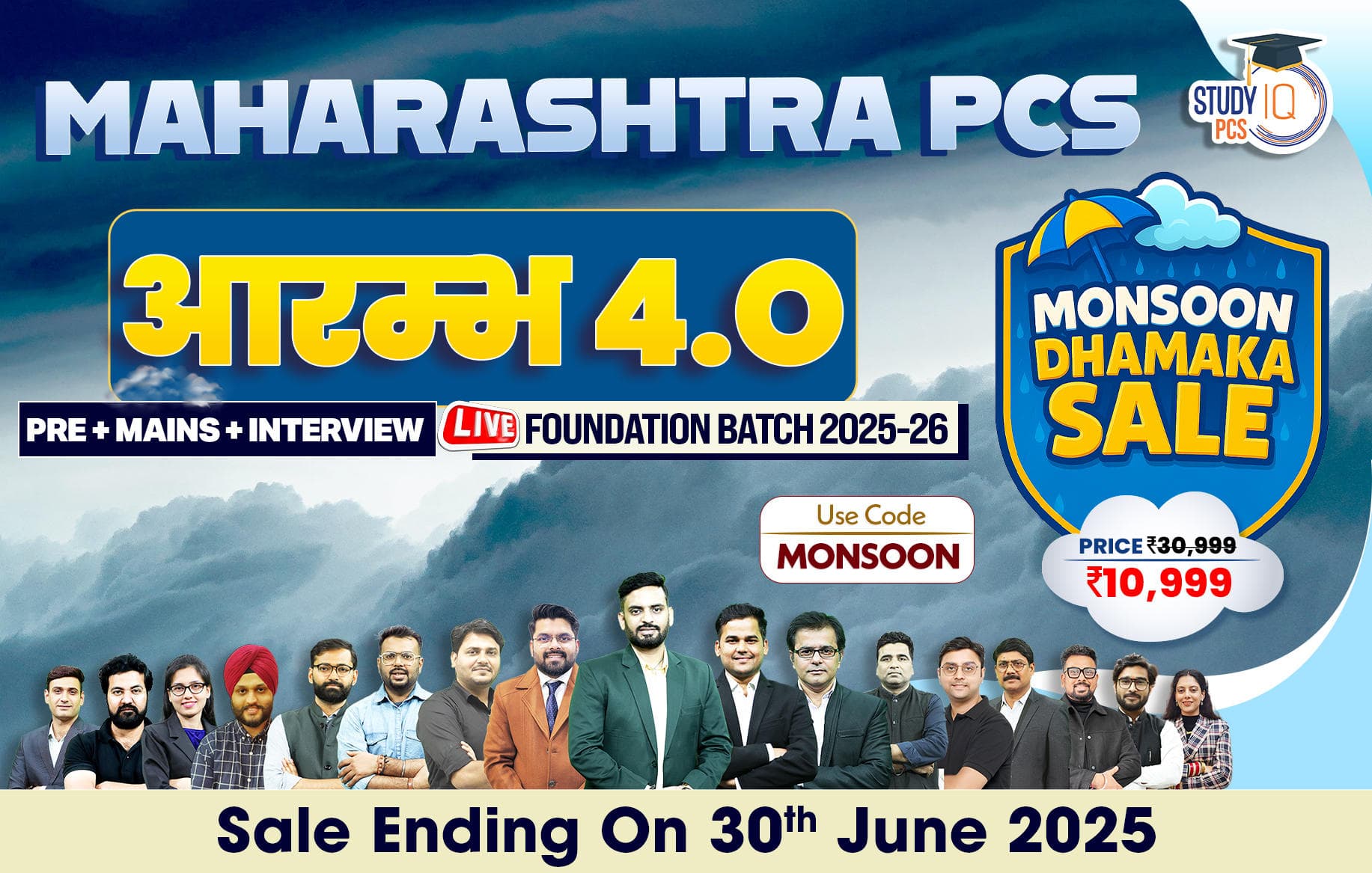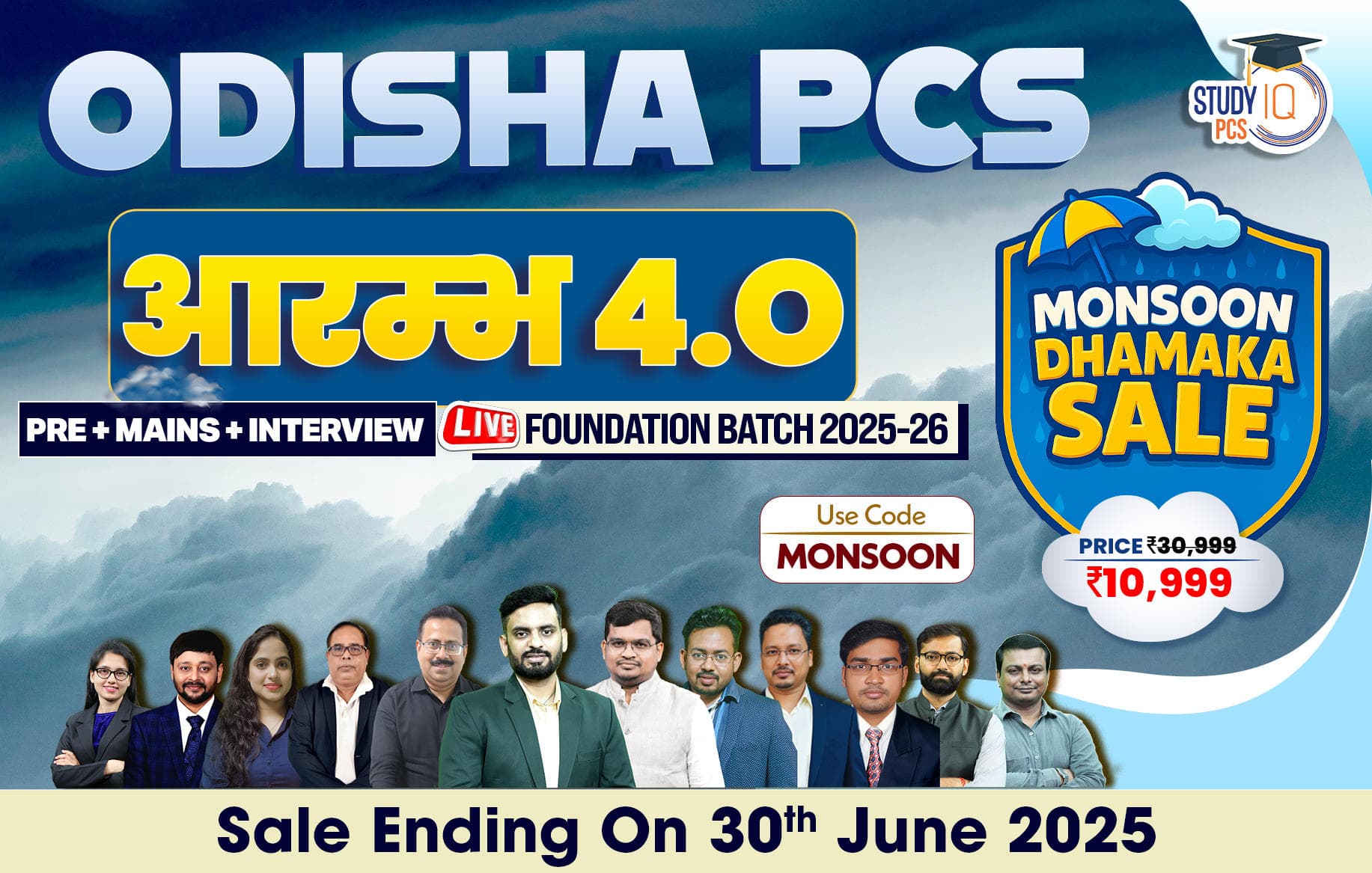Table of Contents
The Madhya Pradesh Public Service Commission conducts the MPPSC State Service Recruitment to recruit candidates for various administrative positions in the state. The Commission released the MPPSC Syllabus 2025, along with the exam pattern for both Prelims and Mains, which provides candidates with a structured approach to their preparation. In this article, we have discussed the MPPSC Syllabus for 2025, exam patterns, and valuable tips for aspirants.
MPPSC Syllabus 2025
Madhya Pradesh Public Service Commission conducts the MPPSC Exam for posts such as Naib Tehsildar, Deputy Collector, Assistant Director, and FRO to fill the vacant posts in State Services and Forest Services of Madhya Pradesh. Aspirants should study according to the chapters and subjects’ importance in the latest MPPSC Syllabus 2025. The MPPSC Exam Pattern 2025 provides details of the exam’s pattern and syllabus that help candidates prepare successfully.
| MPPSC Exam 2025 | |
| Exam Name | MPPSC State Service Exam 2025 |
| Stages |
|
| MPPSC Exam Date 2025 | 16th February 2025 |
| Duration of Exam | 2 hours |
| Official Website | mppsc.gov.in |
MPPSC Syllabus 2025 PDF
The Commission released the MPPSC Syllabus 2025 PDF on its official website. Candidates preparing for the exam should download the MPPSC Syllabus PDF from the Link below. The PDF typically includes detailed information about the topics covered in each subject and the weightage assigned to each topic. Candidates must thoroughly familiarize themselves with the MPPSC New Syllabus 2025 and prepare accordingly to increase their chances of success in the exams.
MPPSC Exam Pattern 2025
The Madhya Pradesh Commission sets the MPPSC Exam Pattern 2025. MPPSC SSE Exam Consists of three stages: Prelims, Mains, and Interviews. Prelims are the first phase of the exam process, which is two objective papers with a total of 200 marks without negative marking. The Mains features six descriptive papers covering General Studies, Hindi, and Essay writing. The interview is the final process for the exam, which carries 175 marks. The final result is based on the combined scores of the Mains and Interviews.
| Exam Name | Type of the Exam | Marks |
| MPPSC Prelims Exam | General Studies-Objective
General Aptitude Test (CSAT)- Objective |
200
200 |
| MPPSC Mains Exam | General Studies-I (3 hours)
General Studies-II (3 hours) General Studies-III (3 hours) General Studies-IV (3 hours) Hindi (3 Hours) Hindi Essay (2 hours) |
300
300 300 200 200 100 |
| MPPSC Interview | Personality Test | 175 |
MPPSC Prelims Syllabus 2025
MPPSC Prelims exam is a screening test. MPPSC Syllabus is divided into two papers: General Studies 1 and General Aptitude Test Paper, which is objective:-
MPPSC Pre Syllabus General Studies 1
We are providing you with a detailed MPPSC Prelims Syllabus 2025 Subject-wise below in the table:
| General Studies Paper I (Subject) | Detailed Topic-wise MPPSC Prelims Syllabus |
| Indian History |
|
| History of Madhya Pradesh |
|
| Indian Constitution |
|
| National and Regional Constitutional and statutory Bodies |
|
| Constitutional System of Madhya Pradesh |
|
| Indian Economy |
|
| Economy of Madhya Pradesh |
|
| Geography of World |
|
| Geography of Madhya Pradesh |
|
| General Science and Environment |
|
| Information & Communication Technology |
|
MPPSC CSAT Syllabus 2025
- Interpersonal skills including communication skills.
- Logical reasoning and analytical ability.
- Decision-making and problem-solving.
- General mental ability
- Basic numeracy
- Hindi Language Comprehension Skill (Class X level).
Also, Check MPPSC Salary
MPPSC Mains Syllabus 2025
| GS Paper | Subjects |
| General Studies I | History, Geography |
| General Studies II | Constitution, Social Issues, Security, International Organization, Economics |
| General Studies III | General Science, Science & Technology, Environment & Sustainable Development, Reasoning & Data Interpretation. |
| General Studies IV | Human needs and motivation, Philosophers/Thinkers, Social workers/Reformers, Aptitude, Emotional intelligence, Corruption, Case studies. |
| General Studies V | General Hindi and Hindi Grammar |
| General Studies VI | Hindi Essay Writing |
MPPSC Mains Syllabus General Studies Paper I
(Part A) – History & Culture
- Economic, Political, Cultural, and Social aspects of History between the Indus Valley Civilization to the 10th Century AD
- India’s economic, political, cultural, and social aspects of history between the eleventh- and eighteenth-century AD.
- Mughal Period
- British rule and its impact on Indian economy & society.
- Peasant and tribal revolt, 1857 revolt, Indian Renaissance, Nation Freedom Struggle Movements, and its prominent leaders.
- India’s Independence, Reorganization of Indian States, Formation of MP, and Major events after India got Independence.
- Independence Movement in Madhya Pradesh.
- India’s culture and heritage (about MP), literature, festivals, the architecture of India and MP
- World Heritage Sites in India and MP
- Major dynasties of MP
(Part B) – Indian Geography & MP
- Major mountain ranges, plateaus, plains, rivers, lakes, and glaciers of the world.
- Geographical phenomena such as volcanoes, earthquakes, tsunamis, landslides, and cyclones.
- Major climate regions and seasons of the world, climate change and its impacts around the world.
- Monsoon, El Nino and La Nina
- Distribution of natural resources (metallic and non-metallic) around the world and India, forest resources
- Population distribution, growth, sex ratio, migration, literacy.
- Soil formation, soil composition, soil erosion, soil degradation, soil conservation planning.
- Natural Vegetation
- Water management, groundwater management, conservation of water.
- Disaster and its mitigation.
- Resource mapping and community planning.
- Remote sensing and its application
- Global Information System, at its application
- Global Positioning System and its application.
MPPSC Mains Syllabus General Studies Paper II
(Part A) – Indian Constitution, Governance, Political and Administrative Structure
- Constitution of India, Basic Structure, Major constitutional amendments.
- Fundamental Rights and Duties, Directive Principles.
- Centre-State relations, Judiciary, Judicial Review, PIL, Lok Adalat
- Constitutional and Non-Constitutional bodies.
- Political parties
- Local government
- Participation of citizens in decision-making
- Self-help groups, NGOs, and Community-Based Organisations.
- Role of electronic media in democracy
- Indian political thinkers such as Mahatma Gandhi, Jawaharlal Nehru, Sardar Vallabh Bhai Patel, Ram Manohar Lohia, Dr. B.R. Ambedkar etc.
- Principle of Public Administration, its meaning, nature and significance, the role of Public Administration in developing countries.
- Concept of Power, authority, responsibility and delegation.
- Theories of organization, unity of command and steps and areas of control
- New dimensions of public management.
(Part B) – Economics & Sociology
- Agriculture, industry and services sectors in India.
- National Income and its measurement.
- Role and function of RBI, commercial banks, monetary policy.
- Taxation in India, direct and Indirect tax, GST, fiscal policy.
- PDS, poverty, unemployment.
- Balance of payment, the balance of trade, the role of foreign capital, FDI, FII, WTO, ADB, etc
- Major crops in India and MP, cropping pattern in India and MP, horticulture, dairy, poultry, fisheries etc.
- Schemes on Agriculture
- Education and its various scenarios in India, government initiatives to promote education in India.
- Issues related to women, senior citizens, children,
- Concept of Culture and civilisation, the caste system in India, Purushartha, Chatushtya, Ashram, Religion and sect influences on society and methods of marriage,
- Family courts, community development program.
- Demography and problems related to it, health, family welfare, women’s education, disease etc.
- World Health Organisation.
MPPSC Mains Syllabus for General Studies Paper III
Physics
- Gravitational Force, Friction, Work and Atmospheric pressure
- Unit and measurements,
- Acceleration, velocity and speed.
- Various aspects of Sound,
- Electricity, circuits and types of Cells
- Magnetism
- Light and refraction and reflection.
- Heat, temperature, and their aspects.
Information & Technology
- Computers, their types, and generations
- Memory of the computer, Input as well as output devices
- Operating system of a computer, software as well as hardware
- Language of Computers, compilers, translators, assemblers, and interpreters
- Electronic mail and the Internet
- Web browsers and social media,
- E-governance, e-banking, etc.
Chemistry
- Element, compound, and mixture and its availability on the earth.
- Metal and Non-metals in the periodic table.
- Nuclear fusion and fission, atomic structure, atoms, etc.
- pH value and acid, base, and salts.
- Chemistry in day-to-day life
Science & Technology
- Remote Sensing and its Application
- History of ISRO and Famous Scientists of India
- Satellites and Launch Vehicles
- Biotechnology and its application in various sectors such as health, medicine, agriculture etc.
- Artificial Intelligence and Robotics
- Patient Rights, Intellectual Property rights and their differences
- Awards in the fields of science and technology.
Biology
- Cell and their functions, animal and plant cells.
- Plant nutrition, balanced diet, deficiency diseases, hormones, etc.
- The human body has its structure and functions.
- Reproduction
- Disease, health, and hygiene
Environment
- Concept of Environment its scope definition etc.
- Human activities and their impact on the environment.
- Environment Pollution, Biodiversity
- Degradation of environment and its cause and effect.
- Green Technology for conservation of environment.
- Policy made by the Government for Environmental protection
Quantitative Aptitude and Statistics
- Number system
- Profit and Loss
- Percentage
- Simple Interest
- Compound Interest
- Ratio and Proportion
- Probability
- Mean, Median, and Mode
- Sampling
MPPSC Mains Syllabus for General Studies Paper IV
Philosophy, Psychology & Public Administration
- Indian and Western Thinkers and reformers such as Buddha, Mahavir, Mahatma Gandhi, Ambedkar, Charwak, etc.
- Aptitude, Integrity, Empathy, Impartiality, tolerance, compassion, and objectivity towards the weaker section.
- Emotional Intelligence and its application in administration and governance
- Elements of ethics in governance such as Transparency, Accountability, Integrity, etc.
- Code of conduct for civil services
- Ethical Reasoning and Moral Dilemmas.
- Effects of Corruptions, its causes, measures to minimize it, the role of whistleblower, media, society etc.
- Case Study
MPPSC Mains Syllabus for General Studies Paper V
| General Hindi and Grammar | |
| Unit I | Short Answer Questions |
| Unit II | Figure of Speech |
| Unit III | Translation of sentences from Hindi to English and from English to Hindi. |
| Unit IV | Sandhi and Samas, Punctuation |
| Unit V – | Elementary Grammar and Vocabulary-
|
| Unit VI | Unread Passage |
| Unit VII | Pallavan – The meaning of the underlined or given lines is Pallavan. |
| Unit VIII | Summary – Summarize the paragraph in one-third words. |
MPPSC Mains Syllabus for General Studies Paper VI
Hindi Essay Writing
| Hindi Essay | |
| Unit I | First Essay (about 1000 words) |
| Unit II | Second Essay: Contemporary Problems and Solutions (about 500 words) |
| Unit III | Draft writing government and Semi-Government letters, circulars, forms, advertisements, orders, endorsements, reminders, report writing, notifications, note writing, etc. (about 250 words) (any two). |

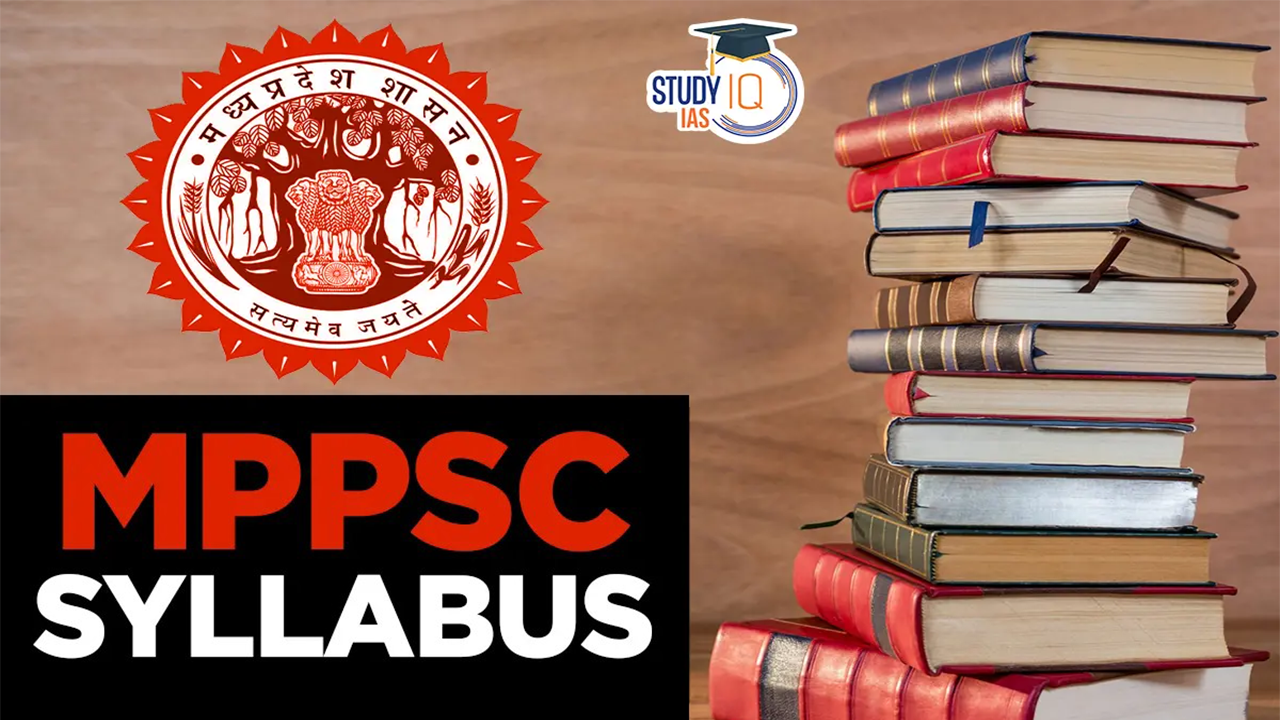
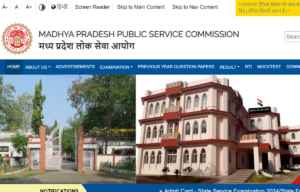 MPPSC Question Paper 2025, Download MPPS...
MPPSC Question Paper 2025, Download MPPS...
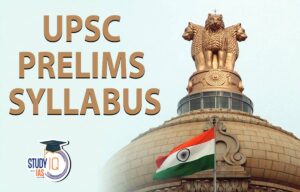 UPSC Prelims Syllabus 2025 PDF, Check Su...
UPSC Prelims Syllabus 2025 PDF, Check Su...
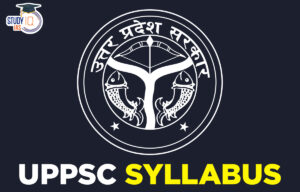 UPPSC Syllabus 2025 PDF, Check Prelims a...
UPPSC Syllabus 2025 PDF, Check Prelims a...
